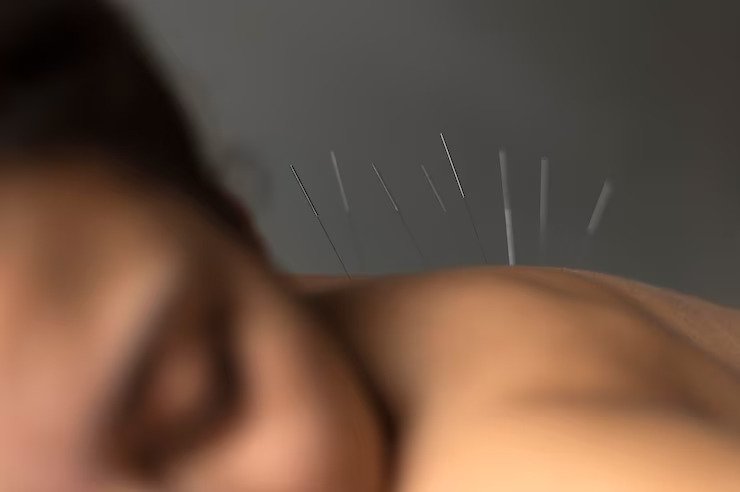6 Unexpected Health Benefits Of Acupuncture
Acupuncture is a traditional Chinese medicine technique that has been used for many years to advance healing and enhance general health.
To encourage the flow of energy, or “qi,” small needles must be inserted into particular body locations. Acupuncture is frequently thought of as a method for treating pain, but it actually provides a wide range of unexpected advantages.
Contents
How does acupuncture work?
According to traditional Chinese medicine, the body has a network of meridians or channels that carry energy throughout the body.
These channels connect to specific organs and functions, and when the flow of energy is disrupted, it can lead to pain, illness, or disease. Acupuncture needles are inserted into specific points along these channels to help restore the balance of energy and promote healing.
Chronic fatigue syndrome, as well as anxiety, depression, and digestive problems, have all been treated with acupuncture. In fact, acupuncture has been shown to help with a range of ailments such as chronic fatigue by encouraging relaxation, lowering inflammation, enhancing circulation, and triggering the release of endorphins, which function as natural analgesics and mood enhancers. Additionally, acupuncture can help boost the immune system and enhance overall physical and mental well-being.
Let’s explore some other surprising benefits of acupuncture

1. Improved Mood and Emotional Health
Acupuncture has been shown to help improve mood and emotional health. According to studies, controlling the release of neurotransmitters like serotonin and dopamine helps acupuncture treat the symptoms of anxiety and depression.
Acupuncture can also help regulate the HPA axis, which plays a role in the body’s stress response. By reducing stress and anxiety, acupuncture can help improve overall mood and emotional health.
2. Reduced Allergy Symptoms
Acupuncture has been found to be effective in reducing allergy symptoms such as congestion, itching, and sneezing. The treatment works by regulating the immune system and reducing inflammation in the body. This can lead to a significant improvement in allergy symptoms for patients who receive acupuncture.
Unlike traditional allergy medications, acupuncture does not have any negative side effects and can be a safe and natural alternative for those looking to manage their allergy symptoms. If you are experiencing allergy symptoms, consider trying acupuncture as a complementary therapy to traditional treatments.
3. Improved Cognitive Function
Acupuncture has been found to be a potential treatment for improving cognitive function in several ways. Firstly, by improving blood flow to the brain, acupuncture can help to increase oxygen and nutrient supply to the brain cells, which can lead to improved cognitive function and memory.
Secondly, by regulating the release of neurotransmitters, acupuncture can positively influence mood, cognitive function, and memory recall. Thirdly, acupuncture can aid in reducing brain inflammation, which has been linked to Alzheimer’s disease and cognitive decline.
Therefore, acupuncture can be a promising complementary therapy for individuals experiencing cognitive decline or memory loss. Nevertheless, it is important to consult a healthcare professional before pursuing acupuncture treatment for cognitive function improvement.
4. Enhanced Athletic Performance
Acupuncture has been a popular therapy used for centuries to improve athletic performance. This ancient technique is believed to enhance blood circulation to the muscles, which helps to increase oxygen and nutrient supply to muscle cells, promoting muscle recovery and reducing inflammation.
Acupuncture can also reduce muscle soreness and improve range of motion, allowing athletes to train harder and longer. The technique can also help to balance the body’s energy flow, which can result in improved overall physical and mental well-being.
Therefore, acupuncture can be a beneficial complementary therapy for athletes looking to improve their performance and promote faster muscle recovery.
5. Improved Sleep Quality
Acupuncture has been found to be effective in addressing the issue of poor sleep quality, which is a prevalent problem that affects many people globally. It can help to regulate the body’s natural sleep-wake cycle, which can improve overall sleep quality.
This alternative therapy can also help to reduce stress and promote relaxation, both of which are critical factors in getting a good night’s rest. Studies have shown that those who receive acupuncture treatments report significantly better sleep quality than those who do not. Therefore, acupuncture can be a viable treatment option for those struggling with sleep-related issues.
6. Improved Digestion
Digestion issues like bloating, constipation, and diarrhea have been successfully treated with acupuncture. This alternative therapy works by stimulating the body’s nervous system and increasing blood flow to the digestive organs, promoting better digestion and nutrient absorption.
Moreover, acupuncture helps lessen gut inflammation, which is advantageous for those with inflammatory bowel disease or other digestive issues. Acupuncture can help with painful symptoms including bloating, gas, and stomach discomfort by enhancing digestive function, which enhances one’s overall quality of life. If you’re struggling with digestive issues, acupuncture may be a viable treatment option to consider.
Final Thoughts
In conclusion, acupuncture is a versatile and effective treatment that has many surprising benefits beyond pain relief. From improved mood and emotional health to enhanced athletic performance and improved sleep quality, acupuncture can help improve overall health and well-being.
Find a qualified and experienced acupuncturist who can help you through the procedure and reach your health objectives if you’re interested in giving acupuncture a try.
Read Also:
- What Is Chronic Fatigue Syndrome? Causes, Risk Factors, Symptoms, Treatment, And More
- What Are 3 Different Types Of Pain Management?
- Knowing Your Medicare Coverage Options



